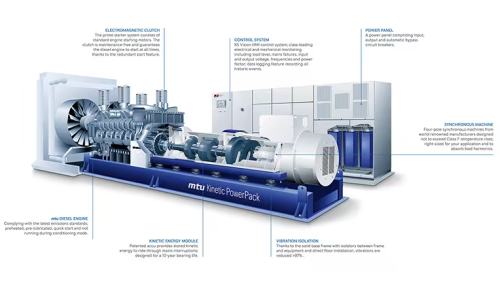Tests on the Rolls-Royce Power Systems test bench at the Liège site in Belgium showed that the use of HVO had no effect on the dynamic behavior of the engine during critical phases under typical load conditions. The systems performed the same with HVO as with fossil diesel.

Previously, Rolls-Royce had approved its mtu Series 1600 and Series 4000 gensets for EN15940 synthetic diesel fuels following successful tests on the test bench and in the field.
For HVO, waste vegetable and animal fats and used vegetable oils can be used as base materials, which are converted into hydrocarbons by means of a catalytic reaction with the addition of hydrogen. Through this process, the fats and vegetable oils are adapted in their properties to diesel fuel and can supplement or completely replace it as an admixture. Because HVO fuel is produced from renewable resources, its production, transportation, and combustion generate only about as many greenhouse gases as were absorbed by the plants during biomass growth. HVO is a drop-in fuel, which means that the existing infrastructure of the mtu Kinetic PowerPack requires no adaption for its use; no engine hardware or software modifications are required.